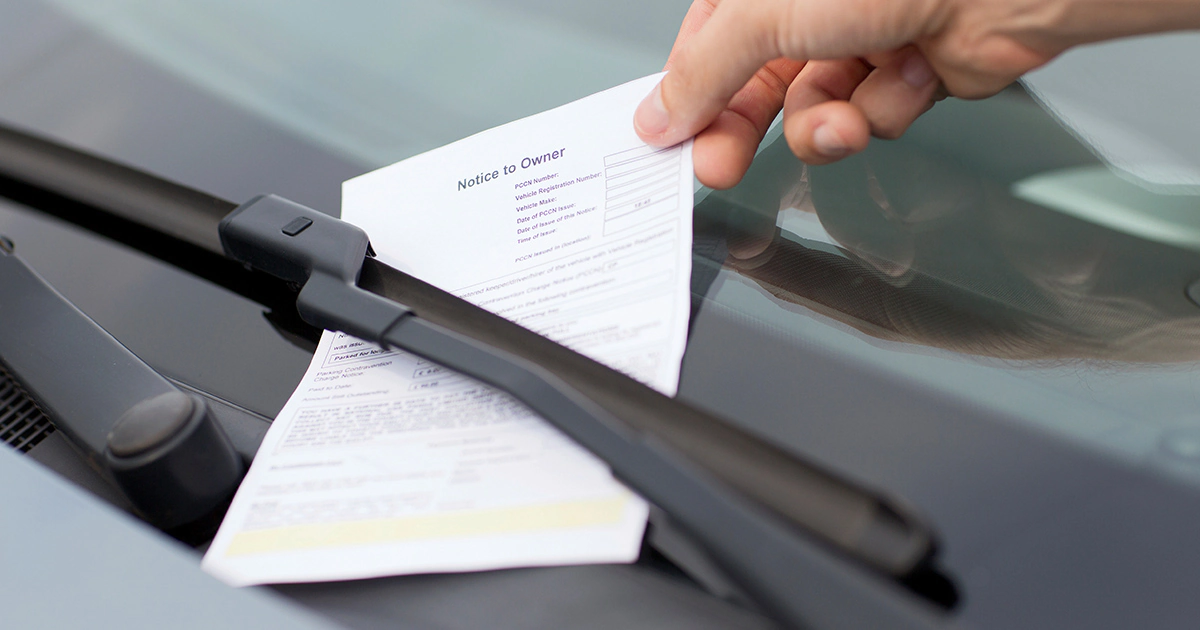Traffic tickets in Ontario are more than mere fines. They can lead to significant legal consequences, increased insurance rates, and even loss of driving privileges. This discussion aims to break down these aspects to better equip Ontario drivers with the knowledge they need to navigate the system.
Ontario Traffic Ticket Fines and Penalties
Ontario traffic ticket fines and penalties vary depending on the nature of the violation. Here is a look at some common offences:
Speeding
Speeding violations in Ontario are common and can lead to substantial fines. The penalty generally depends on the amount by which the speed limit was exceeded:
1-19 km/h over the Speed Limit
Fines for exceeding the speed limit by up to 19 kilometres per hour are calculated at $2.50 per kilometre over the limit. For example, driving 15 km/h over the limit would result in a fine of $37.50.
20-29 km/h over the Speed Limit
If you are caught driving 20 to 29 kilometres per hour over the speed limit, the fine goes up to $3.75 per kilometre over the limit. Also, 3 demerit points will be added to your driving record.
30-49 km/h over the Speed Limit
Speeding 30 to 49 kilometres per hour over the limit is considered a more serious offence, and the fines increase accordingly. In this range, you can expect to pay $6 per kilometre over the limit. Additionally, four demerit points will be added to your driving record.
50 km/h or more over the Speed Limit
Exceeding the speed limit by 50 kilometers per hour or more is considered “stunt driving” under Ontario law. This is a severe offence, and the penalties are more substantial:
- Immediate 14-day license suspension
- Immediate 30-day vehicle impoundment
- Fines ranging from $2,000 to $10,000
- Possible jail term of up to six months
- Six demerit points
Speeding Violation Penalties in Ontario
| Speeding Violation Range | Fine (per km over limit) | Demerit Points | Additional Penalties |
| 1-19 km/h over | $2.50 | 0 | None |
| 20-29 km/h over | $3.75 | 3 | None |
| 30-49 km/h over | $6.00 | 4 | None |
| 50 km/h or more over | N/A (Stunt Driving) | 6 | – Immediate 14-day license suspension – Immediate 30-day vehicle impoundment – Fines ranging from $2,000 to $10,000 – Possible jail term of up to six months |
Distracted Driving
First Offence
If you are caught for the first time engaging in distracted driving—which primarily involves the use of handheld devices like phones while operating a vehicle—the penalties can be severe:
- A fine of up to $1,000
- Three demerit points added to your driving record
- A three-day license suspension
Second Offence
For those who have already been convicted of distracted driving once before, the penalties escalate:
- A fine of up to $2,000
- Six demerit points
- A seven-day license suspension
Subsequent Offences
Upon a third or subsequent conviction for distracted driving, the penalties become even more substantial:
- A fine of up to $3,000
- Six demerit points
- A 30-day license suspension
Novice Drivers
If you are a novice driver under the Graduated Licensing System (GLS), the penalties can be particularly harsh. For the first offence, your license will be suspended for 30 days. A second offence carries a 90-day suspension, and a third offence results in cancellation of your license and removal from the GLS.
Failure to Stop
Ignoring stop signs or red lights carries fines ranging from $60 to $500, depending on the specific circumstances of the violation.
Impact of Traffic Tickets on Insurance Rates
Insurance companies in Ontario assess risk based on driving records, and traffic tickets play a significant role in this assessment. Even minor offences may be considered when calculating premiums.
First Offence
A single minor ticket may not lead to an immediate increase but will affect future premiums if additional tickets are accrued.
Subsequent Offences
Multiple minor or major infractions can lead to an immediate and substantial increase in premiums, affecting the affordability of insurance.
Major Violations
Severe offences, like Stunt Driving, will likely result in non-renewal of a policy or dramatically increased rates.
Demerit Points System Explained
Understanding Ontario’s demerit points system is vital as accumulating points can have serious consequences:
- 2 to 8 points: Warning letter
- 9 to 14 points: Mandatory interview to discuss driving record
- 15 or more points: Suspension of license for 30 days
Points remain on a driving record for two years from the offence date. Knowing how to check traffic tickets online Ontario can help track demerit points and take necessary actions.
Paying vs. Contesting Traffic Tickets
Paying
Paying the fine is a simple way to resolve a ticket but has consequences:
- Admission of guilt
- Impact on insurance rates
- Possible demerit points and suspensions
- Fines
Contesting
Contesting a ticket is an option worth considering, especially if there are valid defences. Knowing how to fight a traffic ticket in Ontario can save money and prevent negative consequences on driving privileges.
Steps to Contesting a Traffic Ticket in Ontario
- Read the Ticket Carefully: Understand the charge and deadlines.
- File a Notice: Notify the court of your intention to contest.
- Seek Legal Advice: Consult with a legal professional.
- Prepare Evidence: Gather evidence to support your case.
- Attend Court: Appear in court as required.
Legal Defenses for Ontario Traffic Tickets
There are numerous ways to challenge the ticket that was issued to you. Here are some of them:
Questioning the Accuracy of the Evidence
- Calibration and Maintenance Records of Speed Measurement Devices: For speeding tickets, it may be possible to challenge the accuracy of the radar or laser device used. This often involves requesting the calibration and maintenance records of the device.
- Officer Testimony: Law enforcement officers must be able to recall the situation accurately. Any inconsistency in their recollection or documentation can be utilized as a defense.
Procedural Errors
- Incorrect or Incomplete Information on the Ticket: If there are errors on the ticket, such as the wrong date, location, or other information this could serve as grounds for dismissal.
- Improper Service: If you were not properly served the ticket or summons according to the rules of the Provincial Offences Act, this may be a valid defence.
Legal Requirements and Statutes
- Missing Signs or Signals: If a traffic sign was obstructed, missing, or not in compliance with statutory requirements, you could argue that you were not adequately informed of the traffic rule you are accused of breaking.
- Necessity: In rare situations, you might argue that the violation was necessary to prevent immediate harm or danger, though this is a difficult defense to substantiate.
- Due Diligence: You might be able to demonstrate that you took all reasonable steps to obey the law but were unable to due to circumstances beyond your control.
Reasonable Doubt
- Ambiguity: If there’s ambiguity in the way the charge is stated, or if it can be interpreted in more than one way, this can sometimes provide a defense.
- Lack of Evidence: If the prosecution fails to provide sufficient evidence to support the charge, a defense on the grounds of reasonable doubt may be possible.
Other Legal Considerations
- Constitutional Issues: Rights violations, such as an unlawful search or detention, could serve as potential defenses but are generally more complex to argue.
- First Offense and Mitigating Circumstances: While not exactly a defense, being a first-time offender or demonstrating mitigating circumstances can sometimes lead to lesser penalties.
Importance of Legal Representation
The significance of securing professional legal representation when faced with a traffic ticket or charge in Ontario cannot be overstated. The Highway Traffic Act and Provincial Offences Act are not just statutes on paper; they are living laws that can have profound effects on your driving privileges, financial standing, and overall quality of life.
Choosing to engage Traffic Paralegal Services means opting for a tailored approach to fighting your ticket or charges. We strive not just to contest a charge but to protect your driving rights and financial well-being. Given the complexities of Ontario’s traffic laws, having legal representation is not just advisable; it’s essential.
Tips for Minimizing Traffic Violations
Preventative measures are crucial for avoiding tickets:
- Obey speed limits
- Avoid distractions like mobile devices
- Adhere to traffic signs and signals
Staying Informed About Ontario Traffic Laws
Staying updated on traffic laws is essential for compliance and safety:
- Review the Highway Traffic Act regularly
- Attend driving refresher courses
- Use Ontario traffic ticket lookup tools
In the midst of the Discussion of Ontario Traffic Ticket, it’s crucial for individuals to regularly check their traffic ticket status online in Ontario to stay informed about any updates or changes in their case.
Understanding the complexities of traffic tickets in Ontario, from fines to legal defenses, can help drivers navigate the challenges they present. If faced with a ticket, considering all options, including contesting with professional legal representation, may lead to a favourable outcome. Traffic Paralegal Services, with its focus on fighting traffic charges, stands ready to assist in this endeavor.
Within the broader Discussion of Ontario Traffic Ticket, individuals may consider the implications of a guilty plea as a potential course of action in addressing their traffic violations.









Leave A Comment
You must be logged in to post a comment.